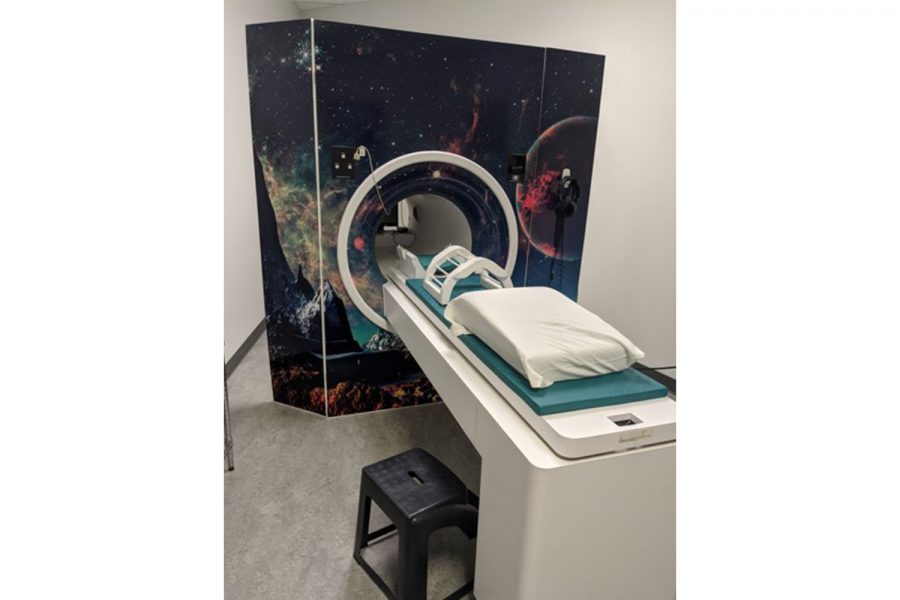Psychiatrist professor and team devise a space-themed scanning process for young patients
To gather brain scans of preschool-aged leukemia patients, Ellen van der Plas and her research team attached vinyl wraps to MRI scanners to simulate a child-friendly journey through space.
October 22, 2020
In an effort to improve the process of cancer research and the experience of child patients at the University of Iowa, Ellen van der Plas has sought an innovative approach to research and patient care: creating MRI vinyl graphics.
Assistant Professor of Psychiatry said she is currently studying acute lymphoblastic leukemia and its treatment’s effect on the brain. She said children are usually quite young when they develop this type of leukemia, normally ranging from 3-5 years old.
For van der Plas to complete her research, she said children have to voluntarily enter into an MRI scanner and remain still for up to an hour. This creates a challenge in her research, as many of these preschool-aged children fear entering the scanners.
“We wanted to make an environment that’s not so overwhelmingly medical and scary,” van der Plas said.
RELATED: UNI student, inspired by memory of sister, works to become a doctor
To ease children’s fears with the scanning process, van der Plas and her colleagues attached space-themed vinyl graphics onto the MRI scanners.
“They feel like they are in a space shuttle. Most kids who are interested in space know that space shuttles are very small, confined spaces,” Clinical Professor of Pediatrics Arunkumar Modi said. “This kind of feeling helps kids imagine they are on a joyride or in some kind of movie experience.”
There are other techniques they use to familiarize the children with the scanning process. The children are given a book called Tom’s MRI Adventure that details the experience of a child undergoing an MRI procedure that he imagines as a journey through space. Using the astronomical setting of the book, van der Plas said was an easy analogy to make in bringing the space-theme to life.
Active in this process, UIHC child life specialist Kristen Rooney said there are other fun ways young children can prepare for an MRI scan, including a LEGO set.
“We also use an app called Simply Sayin’ to let kids hear the different noises that the MRI machine makes,” he said. “Through evidence-based practice, we know that therapeutic play is a powerful tool in helping kids cope with what they are facing at the hospital.”
Rooney credits van der Plas with wrapping the scanners and understanding the importance of child-centered care.
Going forward, van der Plas said she believes the supplemental activities and space-themed vinyl wraps will improve the success rates of voluntary MRI scans for children.
“I won’t be delusional and say it’ll be 100 percent,” the professor said. “But we try really hard to make it as fun for them as possible.”






